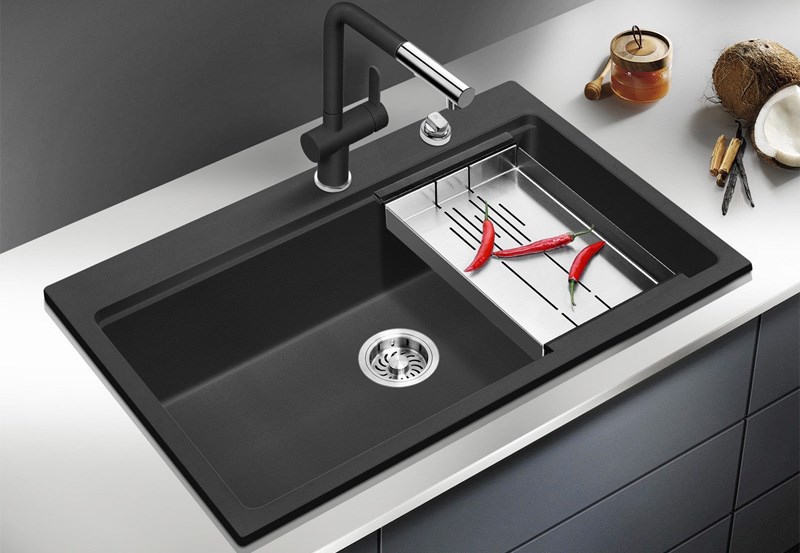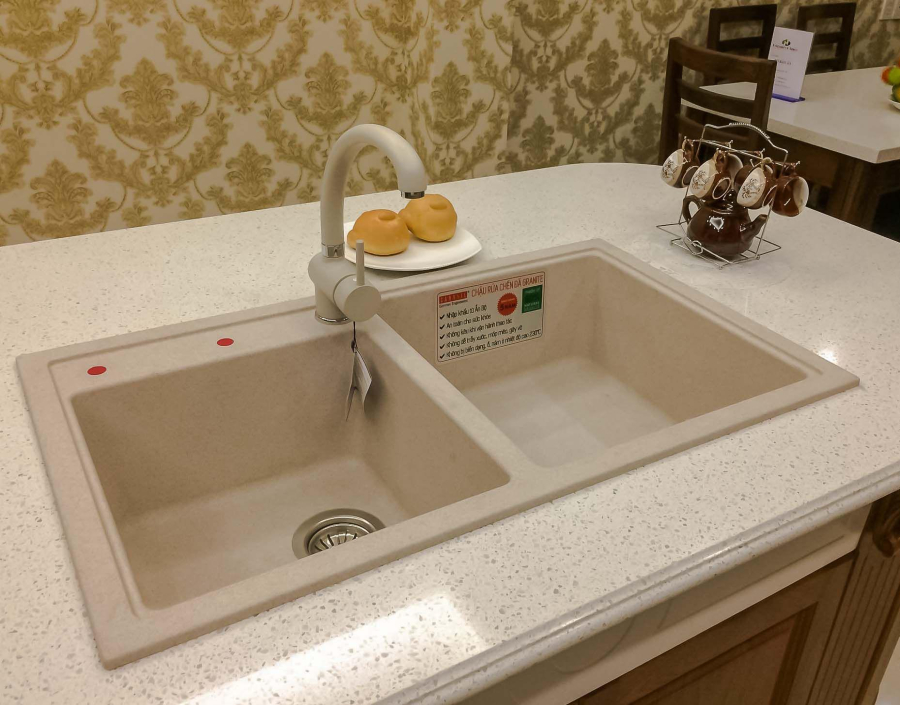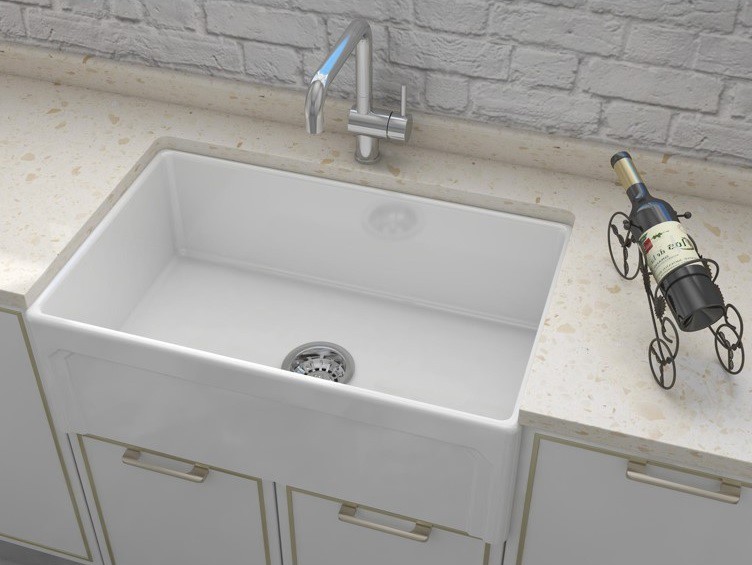How to clean a stainless steel sink
With this type of material, you should avoid using strong cleaning agents as they can reduce the lifespan of the sink. Instead, sprinkle some baking soda on the damp sink surface, then add a little dish soap and hot water to scrub with a sponge.
Start from the edges of the sink and work your way down, pushing all the dirt straight into the drain. Continue adding soap and water as needed or until you see the surface clean and free of residue.
Finally, rinse with clean water and use a soft cotton cloth to dry, avoiding scratching the sink surface.

How to clean a white kitchen sink
Your white kitchen sink can quickly become stained with iron marks, food debris, and unpleasant stains from alcohol and coffee. To deal with these stains on this material, you should use a combination of hydrogen peroxide and baking soda, which helps clean and restore the original beauty of the sink.
First, start by lightly wiping the sink with a damp cloth to create a slight moisture, then sprinkle baking soda all over the sink surface. Next, drop a few drops of hydrogen peroxide on top of the baking soda layer and use a sea sponge or soft brush to gently scrub. When finished, simply rinse with water and dry, and the sink will shine again like new.

How to clean a porcelain sink
For this type of material, simply sprinkle salt on half a lemon and use it to scrub the stains. Continue scrubbing until you see the stains completely disappear. Then, rinse the sink with warm water and use a cotton towel to dry until the sink is dry.

How to clean faucet and handles
You can clean any faucet and handles with soap solution, regardless of the material they are made of. Use a sponge or brush to access and clean hard-to-reach areas.
In case you find white spots still lingering on the surface of the faucet or handles, it could be due to lime deposits formed from minerals in tap water. To remedy this, simply add a spoonful of vinegar to your soap water and proceed with cleaning again, this will help remove these stubborn stains.
Properly Clean Your Dishwasher
This article reveals the proper way to clean different types of kitchen sinks, such as stainless steel, ceramic, copper, or natural stone.

































